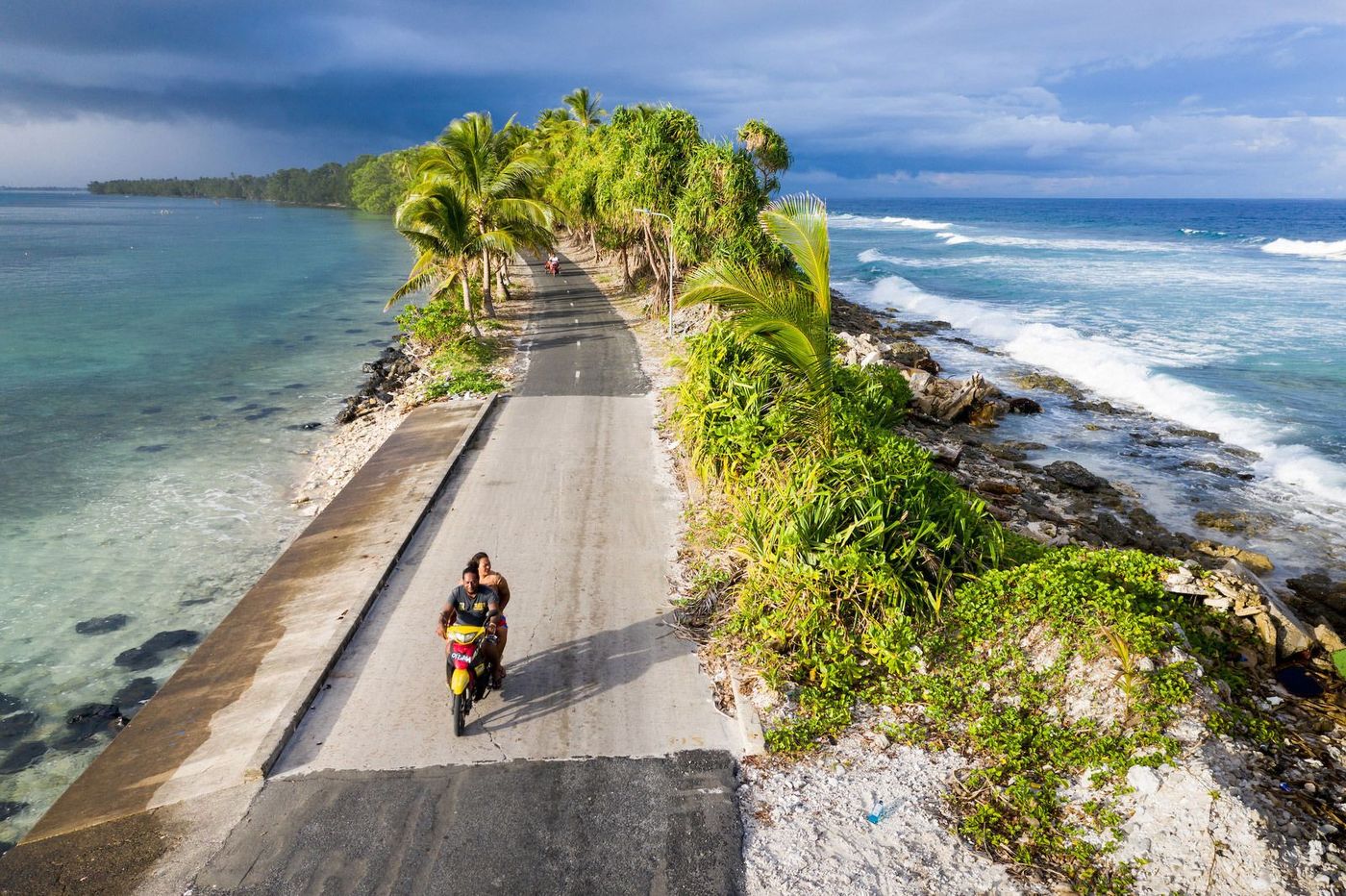
Where is Tuvalu? Tuvalu is a tiny island nation in the Pacific Ocean, situated halfway between Hawaii and Australia. This country consists of nine islands, six of which are atolls. Despite its small size, Tuvalu boasts a rich culture and history. With a population of around 11,000, it’s one of the world's least populated countries. The capital, Funafuti, is home to the majority of the population. Tuvalu faces significant challenges due to climate change, with rising sea levels threatening its very existence. Yet, the resilience and spirit of its people shine through, making Tuvalu a fascinating place to learn about.
Key Takeaways:
- Tuvalu, a tiny island nation, is the fourth smallest country in the world with a population of around 11,000 people. Its unique culture and economy rely on fishing, agriculture, and the revenue from its internet domain, .tv.
- Despite its small size, Tuvalu faces significant environmental challenges, including vulnerability to climate change and scarcity of freshwater. The nation's rich oral tradition and traditional music and dance are vital parts of its culture.
Tuvalu: A Tiny Island Nation
Tuvalu, a small island country in the Pacific Ocean, often flies under the radar. Despite its size, this nation has a rich history and unique characteristics. Let's explore some fascinating facts about Tuvalu.
Geography and Population
Tuvalu's geography and population are quite unique. Here are some interesting points about this tiny nation.
-
Tuvalu is the fourth smallest country in the world. It covers just 26 square kilometers, making it smaller than many cities.
-
The population of Tuvalu is around 11,000 people. This makes it one of the least populated countries globally.
-
Tuvalu consists of nine islands. These include three reef islands and six atolls, which are ring-shaped coral reefs.
Language and Culture
Tuvalu's language and culture are deeply rooted in its history and traditions. Here are some key aspects.
-
The official languages of Tuvalu are Tuvaluan and English. Tuvaluan is spoken by almost everyone, while English is used in government and education.
-
Traditional music and dance are vital parts of Tuvaluan culture. The fatele, a traditional dance, is performed during celebrations and important events.
-
Tuvalu has a rich oral tradition. Stories, legends, and history are passed down through generations by word of mouth.
Economy and Resources
Despite its small size, Tuvalu has a unique economy and resources. Here are some notable points.
-
Tuvalu's economy relies heavily on fishing and agriculture. The ocean provides fish, while the land yields coconuts and taro.
-
Tuvalu earns significant revenue from its internet domain, .tv. Many television companies pay to use this domain, providing a crucial income source.
Environmental Challenges
Tuvalu faces significant environmental challenges due to its location and size. Here are some critical issues.
Tuvalu's Hidden Gems
Tuvalu might be tiny, but it's packed with fascinating facts. This island nation, with its unique culture and vibrant traditions, offers a glimpse into a world many don't know. From its small population to its rich marine life, Tuvalu stands out in the Pacific. The threat of rising sea levels makes it a place of both beauty and concern. Its internet domain, .tv, has brought unexpected fame and revenue. The traditional dances and handicrafts reflect the deep-rooted heritage of its people. Despite its size, Tuvalu's global significance is undeniable. Learning about Tuvalu reminds us of the diverse and rich cultures that exist around the world. Next time you think of the Pacific, remember this gem of a nation.
Frequently Asked Questions
Was this page helpful?
Our commitment to delivering trustworthy and engaging content is at the heart of what we do. Each fact on our site is contributed by real users like you, bringing a wealth of diverse insights and information. To ensure the highest standards of accuracy and reliability, our dedicated editors meticulously review each submission. This process guarantees that the facts we share are not only fascinating but also credible. Trust in our commitment to quality and authenticity as you explore and learn with us.


